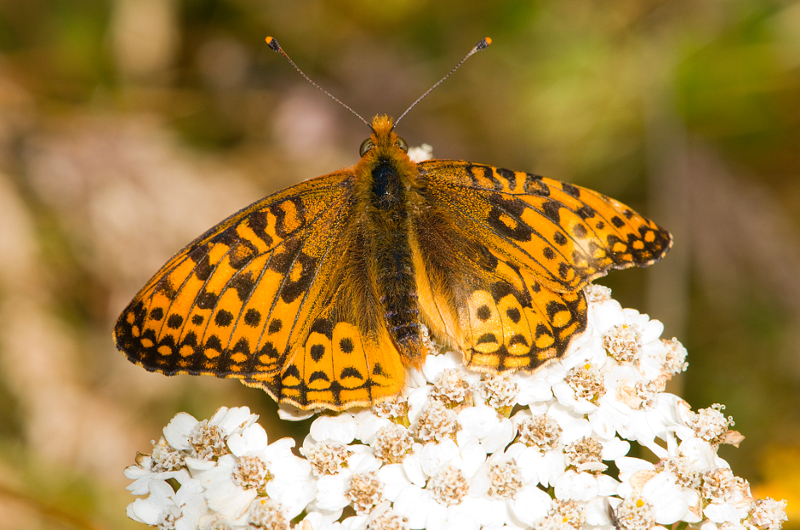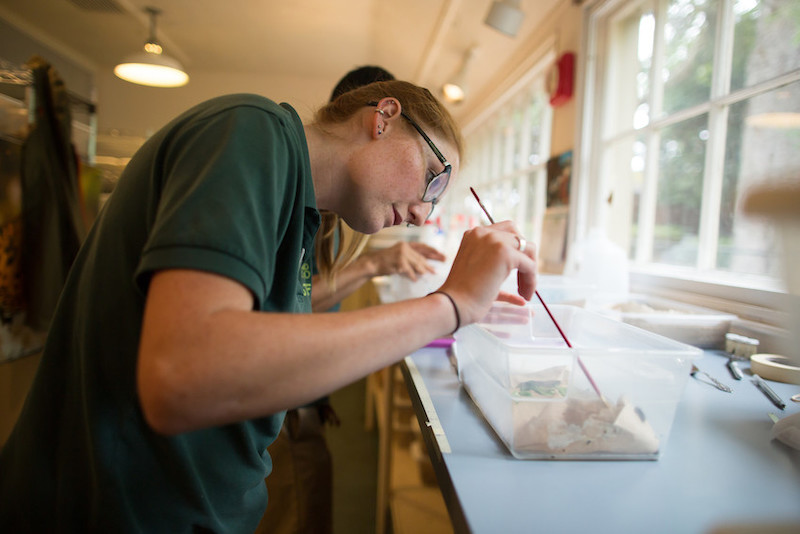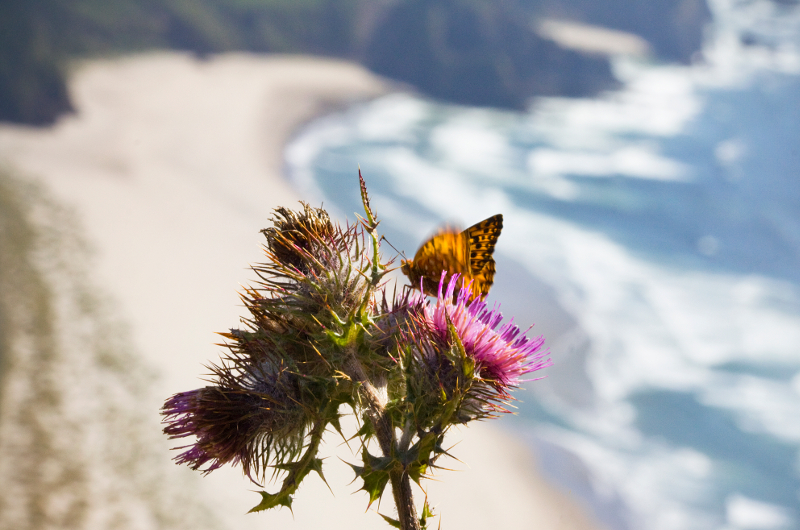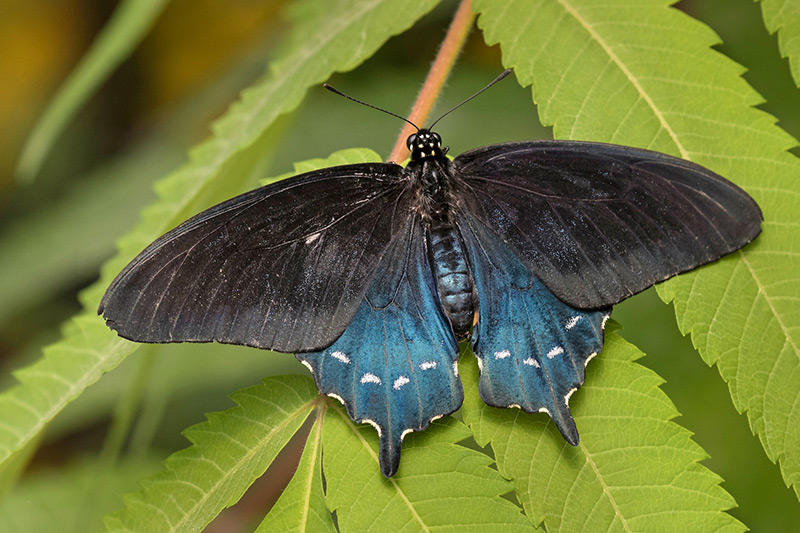OREGON SILVERSPOT BUTTERFLY
Giving endangered butterflies a headstart before releasing into protected Northwest coastal grasslands
BUTTERFLIES OF THE NORTHWEST
Giving Endangered Butterflies a Headstart
The Oregon silverspot butterfly requires vanishing Northwest coastal grasslands to survive. When the butterfly was listed as threatened by the U.S. Fish and Wildlife Service in 1980, it was only known to exist at one site in Oregon. The Oregon silverspot butterfly once lived in coastal prairies from southern Washington through northern California.
In 1999, the U.S. Fish & Wildlife Service revised the silverspot recovery plan, starting a captive rearing and release program with the Oregon Zoo and Lewis and Clark College. Woodland Park Zoo joined the program just two years later. The captive reared butterflies are released at coastal locations in Oregon, where wild blue violets, the butterfly’s essential food source, remain abundant.
ABOUT THE PROJECT
Woodland Park Zoo and Oregon Zoo are currently working together to head start the butterflies. Butterflies from coastal Oregon are induced to lay eggs in the lab. These butterflies are captured near the end of their life cycle, having already bred and laid eggs in the field before being brought to either zoo. To help the butterflies flourish, keepers feed them homemade nectar, which includes a solution of sugar, water and egg whites on saturated cotton balls.
When the eggs hatch, the young larvae are placed in specially designed containers, then put in a refrigerator for winter diapause. After dormancy, the butterfly larvae feed on western blue violet leaves. Soon after, they pupate and are large enough for return to the wild to emerge as adult butterflies in renewal of their reproductive cycles.
Woodland Park Zoo has participated in the release of between 1,000 and 2,000 silverspot butterfly pupae each year since 2001. Continued efforts have augmented three current populations and are working to establish two new populations in Oregon.
Helping Butterflies and Restoring Habitat

Working Together
In the last 4 years, Woodland Park Zoo and Oregon Zoo have released over 10,000 pupae. In 2012, both zoos shared the AZA Significant Achievement Award for their work on the Oregon silverspot captive rearing program.

Establishing New Populations
Starting in 2017, larvae from Woodland Park Zoo have been released to establish new populations along the Oregon coast. The release team saw adult butterflies on site when releasing the larvae, a sign that the larvae released the previous year survived and bred to produce a new generation.

Local Habitat Restoration
As of 2019, the U.S. Fish & Wildlife Service has begun habitat restoration in Washington in preparation for future recovery of the Oregon silverspot butterfly in the state.
WHAT YOU CAN DO
Support Native Pollinators
Help support your local pollinators by eliminating the use of pesticides and by growing pollinator friendly plants around your home.
ABOUT PESTICIDES

POLLINATOR PLANT GUIDE

MORE WAYS TO HELP